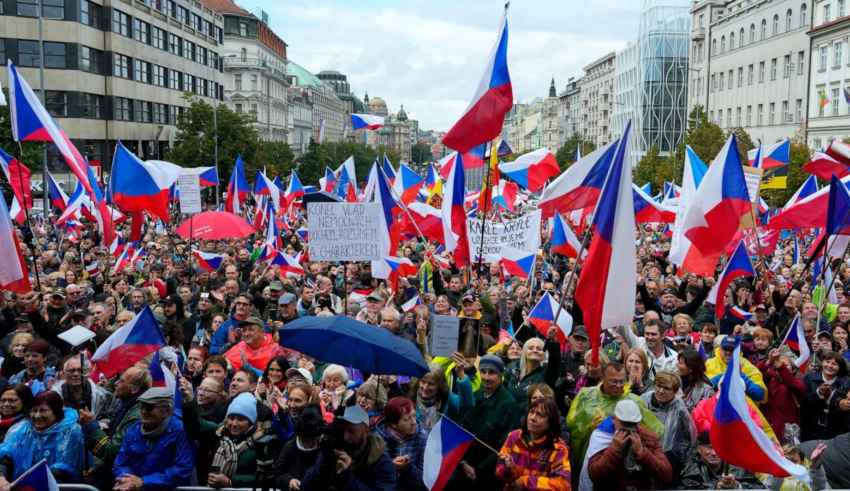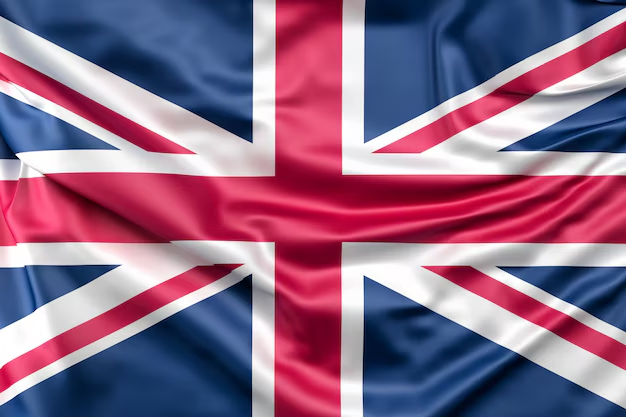
Tens of thousands of Czechs demand the resignation of the government and an end to Russian sanctions. Vladimir Putin does not control them. But then who does ? “Nonviolent revolution” is what the organizers call their protest event. They are demanding the resignation of the conservative-liberal government under Petr Fiala, an end to EU sanctions against Russia, and the start of direct negotiations between Prague and Moscow to obtain its own supply contracts for natural gas. The slogan is “Czech Republic first”.
When the, up until now, unknown Czechs Ladislav Vrábel and Jiří Havel called for demonstrations under this slogan in the summer, the response was initially rather muted. But on September 4th, according to official estimates, a considerable 70 000 people came to Wenceslas Square. It was not only the sheer number of demonstrators that caused a stir, but also the political structure that seemed to be forming. For the call is meanwhile supported by the far-right party “Freedom and Direct Democracy” with the confusion-prone acronym SPD. The communist heir of the former state party KSČM also called for participation. All against the centre-right coalition in office.
The idea of a popular front or cross-front that could form on the occasion of social upheavals resulting from the war in Ukraine has also electrified many on both edges of the political spectrum in almost every European country.
Fiala initially reacted rather condescendingly
Whether the Prague model will become a successful model for such efforts is yet to be seen. A smaller crowd came to Wenceslas Square for the demonstration in late September; police spoke of numbers in the low tens of thousands. The gathering was also broadcast to provincial cities such as Brno, Pilsen, Liberec or Budweis, where a few thousand people also gathered.
What continued to work, however, was the involvement of the extremes on both sides. In Prague, the KSČM had set up a tent with not only flyers of all the classics of class-struggle to take home, but also lists of support for the communist candidate in the upcoming presidential election. Another candidate, Alena Vitásková, also tried to use the opportunity to collect signatures of support.
The far-right SPD was not present the last time. In a kind of division of labor, it had called for its own meeting in Moravian Ostrava and broadcasted the Prague demonstration there. For this purpose, a few well-known speakers from abroad had been brought in, including AfD (German far right party) politicians Christine Anderson, a member of the European Parliament, and Petr Bystron, a member of the Bundestag (German federal parliament).
Prime Minister Fiala initially reacted rather condescendingly to the protest. It was clear, he said, that prorussian disinformation campaigns are present on the territory and some people succumb to them. Everyone has the right to express their positions and demonstrate, he added : “the protest on Wenceslas Square was called by forces that are pro-Russian, are close to extreme positions and are against the interests of the Czech Republic”. Even in the ranks of his own party, this reaction was considered unfortunate.
The organisers from the rally have a list of demands : first and foremost the resignation of the government. Then, President Miloš Zeman should convene a government of experts – they even had a list of suitable personalities ready. And finally, all members of parliament should leave their parties, because they are “part of the structure of global elites”. The latter, however, was not a demand, but a request – a fine distinction.
In order to put the Czech Republic first, not only energy autonomy is demanded, through direct negotiations with Moscow of all places, but independence altogether – from the EU, the WHO, even the UN. The demand that Ukrainian refugees should return to their country after the end of the war, where they would be needed, seems particularly firm. “The mentality and national customs and views of the Czechs, Moravians and Silesians are very different from the customs and views of the Ukrainians. These different approaches to life and the language barrier are dangerous elements for the peaceful coexistence of both populations in the Czech Republic.” Vrábel (an organiser of the rally) tries to counter the accusation that this is a rather shabby attitude, by affirming that this is not a rejection of help in need. He himself was among the first to pick up Ukrainian refugees. But the EU is planning to “forcibly mix nations” with a program of temporary protection they claim. And that’s what they’re against.
Vrábel agrees in principle that a government based on a majority of elected deputies is perhaps more democratically legitimate than a government of experts. However : “We are on the brink of war and on the brink of economic disaster. They have not fulfilled their legal obligations. Therefore, we demand their demission”. The new government, he said, should then urge the warring parties in Ukraine to make peace.
Doesn’t this reminds him, of all people, as a Czech, of 1938 ? Didn’t foreign powers at that time also push Czechoslovakia to cede territory to Hitler’s Germany for the sake of peace ? “We can come up with very complicated constructions of what is going on and what is not. But the solution is very simple”, Vrábel is convinced. Namely, the presidents of Russia and Ukraine would just have to sit down together and make peace. After all, there is always peace at some point, and sooner is better than later. For now, both sides are looking for excuses because they want war he says, and adds : “We want them to turn around 180 degrees.”
There are also duller slogans to be heard, but overall the audience seems rather bourgeois. There is also Miroslav Ševčík, dean at the University of Economics, a converted former communist, an Euro-sceptic who thinks the European Union is too socialist. He is especially opposed to the EU’s Green Deal on the warpath. But in the end, it is mainly existential hardships that bring people to the streets.
By The European Institute for International Law and International Relations.














